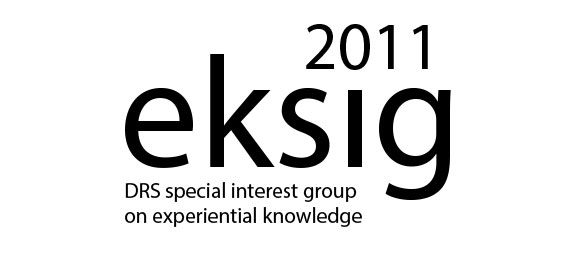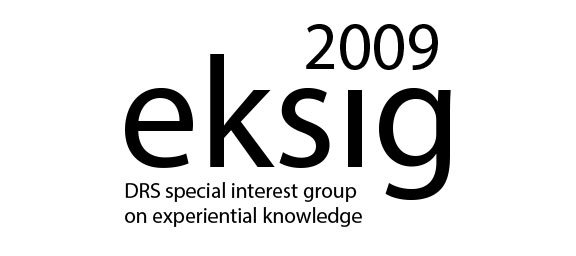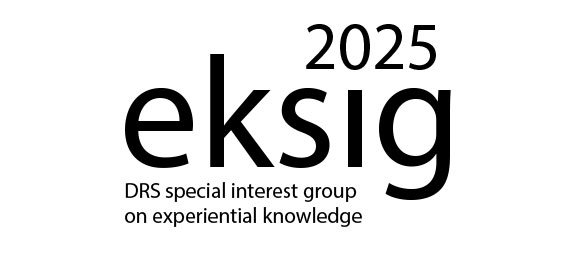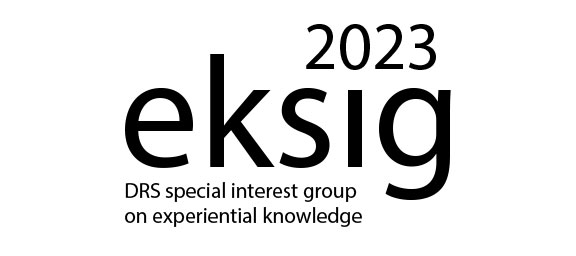EKSIG 2011 SkinDeep - experiential knowledge and multi sensory communication
International Conference of the DRS Special Interest Group on Experiential Knowledge at University for the Creative Arts, 2011
Date: Thursday and Friday, 23–24 June 2011
Venue: University for the Creative Arts, Farnham Castle, UK
EKSIG 2011 addresses the theme of 'SkinDeep - experiential knowledge and multi sensory communication'.
- Richard Shusterman, Florida Atlantic University, USA
- Magdalene Odundo, University for the Creative Arts, UK
- Christoph Zellwegerm, Sheffield Hallam University, UK
- Antonia Taddei and Ludovic Nobileau, X-TNT and Paris-Montagne, France
The conference aims to provide a forum for debate about the multi faceted, multi sensory and multi modal possibilities of communicating knowledge in the creative disciplines.
The need to address the issue of communication has arisen because of the different approaches and requirements regarding the dissemination of knowledge and experience in research and creative practice. For example, creative practice tends to convey its content and meaning through its outcomes, such as artifacts and various other kinds of manifestations. We interpret artefacts here in the widest possible sense to include any kind of creative output in whatever format. These outcomes can relate to different, often intersecting or converging sensory stimuli such as visual, aural, tactile or olfactory. Equally, procedural or process knowledge - in the creative disciplines more commonly known as skill - relies on demonstration and first hand experience for its communication as much, or more so, than on written text.
In contrast, the presentation of research traditionally has been fixed to its verbal and textual articulation with a whole tradition of dissemination, mainly in written formats, such as peer reviewed conferences and journals. This predominance of textual presentation has long been questioned in the creative disciplines, and recent workshops on the role and balance between text and other forms of the communication of research, and on the multi-modal presentation of research have indicated a strong interest and need to exchange knowledge and experiences on the issue of multi-sensory communication of research.
Recent developments are providing more and more examples of how textual communication can be augmented by other forms of articulation and exchange. The developing understanding arising from these examples is that the inclusion of research processes and outcomes evolving through creative engagement and sensory experience can help integrate and/or articulate insight or understanding that cannot easily be made explicit, such as the tacit part of experiential and procedural knowledge, commonly known as tacit knowledge.
With this conference, we wish to explore the different ways in which tacit knowledge can be given more appropriate consideration within the framework of research. This may include for example investigations into the nature, aims, validity, evaluation, and/or necessity of different modes of communication and exchange.
Questions of interest are for example:- What do we mean when we say we ‘communicate knowledge’?
- How can we articulate and/or communicate tacit knowledge/knowing within the process of research?
- Why is the communication of tacit knowledge important for the understanding of research?
- What frameworks, modes and methods are there to guide the communication and presentation of research (process and/or outcomes)?
- What frameworks are there to guide the communication of the contribution to knowledge?
- What frameworks are there to guide the reception and interpretation of any research communication, for example research exhibitions or performances, etc?
- What contribution can the use of creative practices make to the understanding and communication of tacit knowledge in research?
- What issues evolve from criteria of research such as repeatability and transferability for the foregrounding of tacit knowledge in research in the creative disciplines?
- Can we talk about the communication of tacit knowledge, or should we talk about a transfer, etc?
- What means and methods do we have to transfer and iterate tacit knowledge?
Conference Organizers
Kerstin Mey, University for the Creative Arts, UK
Kristina Niedderer, University of Wolverhampton, UK
Seymour Roworth-Stokes, University for the Creative Arts, UK
Linden Reilly, London Metropolitan University, UK



